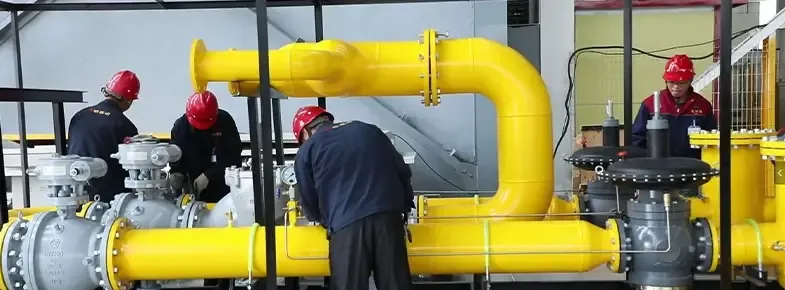
Sep . 16, 2024 11:50
Back to list
gasifier
Understanding Gasification A Sustainable Solution for Energy Production
Gasification is an innovative process that converts carbon-based materials into synthetic gas (syngas), which primarily consists of carbon monoxide, hydrogen, and small amounts of methane. This process has gained significant attention in recent years, as it offers a sustainable method for energy production and waste management. By transforming organic materials, such as biomass and municipal solid waste, into usable energy, gasification presents a viable alternative to traditional fossil fuels.
Understanding Gasification A Sustainable Solution for Energy Production
One of the most significant benefits of gasification is its ability to utilize a variety of feedstocks. This versatility enables the use of agricultural residues, forestry by-products, industrial waste, and even municipal solid waste. By converting these materials into energy, gasification not only helps to reduce landfill waste but also mitigates greenhouse gas emissions associated with their decomposition. Thus, it plays a crucial role in promoting a circular economy, where waste products are repurposed as valuable resources.
gasifier

Another advantage of gasification is the production of syngas, which can be utilized in numerous applications. Syngas can be burned directly to generate electricity in gas turbines or internal combustion engines. Furthermore, it can serve as a precursor for producing chemicals, fuels, and fertilizers through various synthesis processes. For instance, the Fischer-Tropsch synthesis converts syngas into liquid hydrocarbons, which can be refined into synthetic fuels. This versatility in applications can significantly enhance energy security, especially for countries looking to reduce their dependence on imported fossil fuels.
Moreover, gasification technology contributes to lowering the carbon footprint of energy production. When biomass is used as feedstock, the carbon dioxide released during combustion is offset by the carbon absorbed during the growth of the biomass, leading to a net-zero carbon cycle. Additionally, advancements in gasification technology are continually improving efficiency and emissions control, making it a more environmentally friendly option compared to conventional fossil fuels.
Despite its benefits, gasification is not without challenges. The initial capital costs for building gasification facilities can be high, and the technology requires skilled operators and robust infrastructure. Moreover, ongoing research is essential to improve the efficiency of the process and reduce costs, making it more accessible for widespread adoption.
In conclusion, gasification represents a promising solution for sustainable energy production. By converting waste materials into valuable energy, it addresses two pressing issues the need for clean energy sources and the challenge of waste management. As technology continues to advance, gasification has the potential to play a pivotal role in the global transition toward a more sustainable and circular economy. Embracing this innovative approach can help society move away from fossil fuels and work toward a cleaner, greener future.
Latest news
-
Safety Valve Spring-Loaded Design Overpressure ProtectionNewsJul.25,2025
-
Precision Voltage Regulator AC5 Accuracy Grade PerformanceNewsJul.25,2025
-
Natural Gas Pressure Regulating Skid Industrial Pipeline ApplicationsNewsJul.25,2025
-
Natural Gas Filter Stainless Steel Mesh Element DesignNewsJul.25,2025
-
Gas Pressure Regulator Valve Direct-Acting Spring-Loaded DesignNewsJul.25,2025
-
Decompression Equipment Multi-Stage Heat Exchange System DesignNewsJul.25,2025

